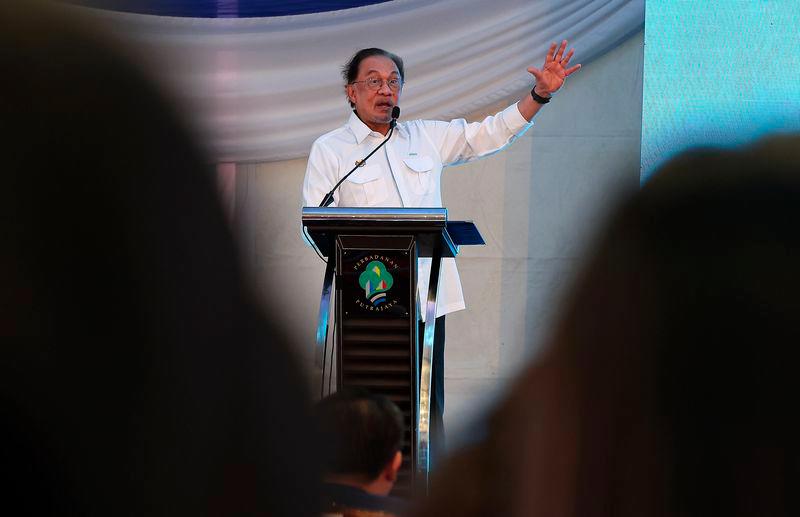PUTRAJAYA: Electric vehicles (EVs) are set to serve as the official cars for ASEAN leaders attending state events when Malaysia chairs ASEAN next year, says Prime Minister Datuk Seri Anwar Ibrahim.
He said, therefore, the government would strive to secure as many EVs as possible.
“Interesting that Cabinet decided recently, (all this time) everywhere we go, heads of government will get huge Mercedes.
“What happens now, we think if we are serious about sustainability and energy transition, let us showcase it in Malaysia; all cars to be provided for heads of government, ministers, officials will be only EV cars,“ he said.
The forum on Monday (Oct 28), titled ‘The Energy Sector as a Catalyst for Sustainable and Inclusive Socioeconomic Growth’, was jointly organised by the Ministry of Higher Education (KPT) and Petronas.
ALSO READ: Miti to help Perodua achieve target of producing first sub-RM100,000 EV
Also present were Deputy Prime Minister and Minister of Energy Transition and Water Transformation, Datuk Seri Fadillah Yusof, Higher Education Minister Datuk Seri Dr Zambry Abd Kadir, Economy Minister Rafizi Ramli, and Petronas president and group chief executive officer, Tan Sri Tengku Muhammad Taufik Tengku Aziz.
Anwar said that the decision to use EVs, despite their potentially smaller size, was due to their cost-effectiveness compared to other vehicles.
“We will inform all ASEAN leaders, that we want to provide larger cars, but this is the biggest EV available. Please use it and be satisfied,“ he said.
Meanwhile, Anwar remarked that Malaysia should seize the opportunity presented by its ASEAN chairmanship, recognising the region’s economic potential, and thus enhancing the country’s economic and political influence within the region.
ALSO READ: Budget 2025: Call for government to address labour shortage in automotive, EV technology
“We must utilise this opportunity to position Malaysia as the ASEAN hub for sustainable growth,“ he said.
According to Anwar, Malaysia can now selectively choose the types of investments it wished to attract, given its capacity to draw in investments.
“Previously, we welcomed all data centres, now not so; we only accept data centres that bring added centres of excellence, AI (artificial intelligence), training transfer, and exposure. Otherwise, we decline.
“We have an advantage here because we have reached a point where we can now be more selective about the investments we accept,“ he said.
Anwar added that Malaysia was adopting a more assertive foreign policy approach without neglecting diplomacy.
ALSO READ: Launch of EV, battery management guideline reflects Malaysia’s commitment to green mobility
“We remain polite but straightforward in our relations,“ he said, referring to cooperation with China.
He said that projects like the East Coast Rail Link (ECRL) were now being carried out “on our terms” with a focus on utilising local resources, technology transfer, and local talent development.









